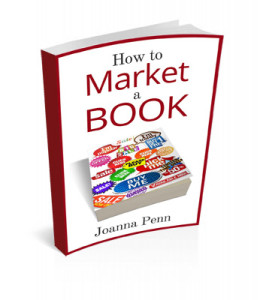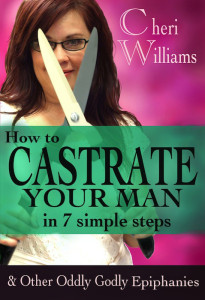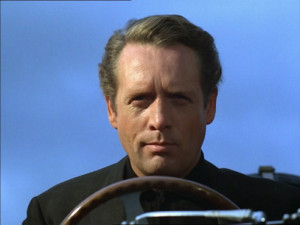James Scott Bell
@jamesscottbell
Heraclitus, that old pre-Socratic philosopher who shuffled along the streets of Athens in 450 B.C. thinking deep thoughts, called reality a river, and famously noted, “You can’t step in the same river twice.”
He would not, therefore, have been surprised in the slightest by the changes in the publishing industry. For the only thing certain about the future of books is that none of it is certain. The flow of innovation continues apace and the river is filled with rocks, waterfalls and more than a few overturned kayaks.
But look at all the writers with life vests on. And some even shooting the rapids with a whoop and holler. If you want to survive and even thrive in the rush and spray of publishing today, you need to do the following:
1. Elevate your game
Here’s the deal for the rest of your life: you’re going to have to keep getting better as a writer. You have more competition. There’s a growing number of writers out there who know what they’re doing, and are hungry, and are after the same readers you are.
True, there’s an even larger number of writers who don’t have the stuff yet, and won’t put in the hard work to get it. They’ll eventually get frustrated and drop off the map. But, like a Hydra’s head, they’ll be replaced by nine more writers who areworking at this thing.
Be one of the workers. Write to a quota and set aside at least one hour per week to study the craft. Doing those two things consistently will get you further downstream than anything else. Every now and then go to a writer’s conference, or sign up for a specialized workshop like, ahem, this one. Subscribe to Writer’s Digest and at least scan every article. I always pick up a few things with each issue.
2. Understand publishing contracts
The traditional publishing world is still there. It’s big and it’s venerable. Sure it’s tight, but there are still deals being made. If you decide to go that route, learn what key contract terms mean. Especially understand non-compete clauses, option clauses, termination and reversion of rights. A good place to start is in the “Contracts” archive of
The Passive Voice.
Have the attitude that many things are negotiable, but also understand your “leverage” depends on your track record (if any), the size of the publishing house and how much you desire to be traditionally published.
Strategize with your agent and determine: a) what you would LOVE to have in the contract; b) what would be NICE to have; and c) what you absolutely MUST have. Make sure your c) list is short and reasonable. Ask yourself if you are prepared to walk away from a deal if you don’t get your c) terms. If you’re not, make them b) terms.
Writers and publishers need to understand it’s more possible than ever to forge a win-win deal if the parties are flexible and creative.
3. Take more risks
Editors and agents all say they are looking for a “fresh voice.” What they mean is a fresh voice they can actually sell. Everyone wants to land in that sweet spot where originality and commerce meet to make that ka-ching sound.
You will grow as a writer, and get closer to that sweet spot, if you take more risks with your writing. Push yourself past comfortable limits. Deepen your style and character work. Especially if you’re doing genre books where we’ve seen just about everything many times over.
4. Begin a self-publishing stream
There is absolutely no reason anymore for a writer not to have a stream of income from self-publishing. When approached the right way this will not only result in steady revenue, but also build that ever-loving “platform” everyone talks about. You will be making readers. Traditional publishers are starting to get that. There is no longer a stigma to self-publishing.
But, and I emphasize this, only if you approach it systematically and in a businesslike fashion.
Fortunately, the business fundamentals are not difficult to understand. I call these fundamentals
The 5 Absolutely Unbreakable Laws for creating steady income as a self-publisher.
5. Set goals
Not everyone is a goal setter. Which is a little hard for me to understand, because I’ve been setting goals most of my life. Writers want to achieve. They want to publish, sell, make readers. To give yourself the best shot, you need to set goals that you can actually control, and work toward them every day.
Did you know that if you set down written goals and regularly work toward them, you immediately jump into the top 3% of achievers in any field? So why aren’t you?
6. Work smarter
In addition to goals, there is the matter of using your time wisely. Do this: Look at the calendar of your upcoming week (I do this on Sunday). Fill in the places where you have obligations (job, soccer practice, appointments). Now look at the empty slots and start filling them with writing and studying time.
Anthony Trollope wrote almost 50 novels while working full time as a civil servant (of course, this was in the era before Twitter and Angry Birds. But I digress). He did it by finding the time to complete his quota of words. Day by week by month by year.
7. Stay cool
You can get yourself all tied up in knots about this crazy business. You can look at sales numbers and Amazon rankings and bad reviews and friends’ successes and your own perceived disappointments (though I maintain nothing is wasted in a writer’s life if he refuses to be defeated). There are going to be striking developments requiring fresh decisions, and those same decisions may look different to you a month later.
But stay frosty. The way a writer does that, the best way, is to write, to have pages to work on every day. To be developing other projects even as you are working on your WIP. Here’s a favorite quote from Dennis Palumbo: “Every hour you spend writing is an hour not spent fretting about your writing.” (Writing from the Inside Out)
So don’t fret, type. Shoot the rapids. Live large.
I’ll see you downriver.
Anything else you would add to the list?






